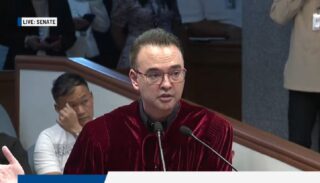The Philippine Chamber of Commerce and Industry (PCCI) has urged government financial institutions (GFIs) to take the lead in providing much needed loans to sectors covered by mandatory lending policies such as those for agriculture and agrarian reform beneficiaries.
PCCI president Alfredo M. Yao noted that rather than saddling local banks with numerous mandates on who or which sectors to lend to–a move that could potentially put some of the smaller banks at risk–it should be the GFIs that should provide the financing requirements of these sectors.
Yao said that as it is, local banks were often unable to fully comply with these mandatory lending policies given the huge risks involved, prompting a number of them to resort to paying the penalties instead.
There should be more alternative mechanisms that will allow banks to comply without having to pay penalties, he said.
At present, banks are mandated to allocate 10 percent of their loan portfolio to local enterprises under Republic Act No. 9405 or the Magna Carta for MSMEs.
Under this law, eight percent of the banks’ credit portfolio should be set aside for micro and small enterprises and the remaining two percent for medium-sized companies.
On the other hand, Republic Act 10000 or The Agri-Agra Reform Credit Act of 2009 states that “banks shall set aside at least 25 percent of their total loanable funds for agriculture and agrarian reform credit in general, of which at least 10 percent of the total loanable funds shall be made available for agrarian reform beneficiaries. Excess compliance in the 10 percent agrarian reform credit may be used to offset a deficiency, if any, in the 15 percent other agricultural credit, in general, but not vice versa.”
According to Yao, lending to SMEs was still manageable but lending to agriculture and agrarian reform beneficiaries was deemed to be a high risk activity.
The government, he added, should allow banks anew to purchase Agrarian Reform (AR) Bonds from the Land Bank of the Philippines (LBP) as a form of compliance with RA 10000.



